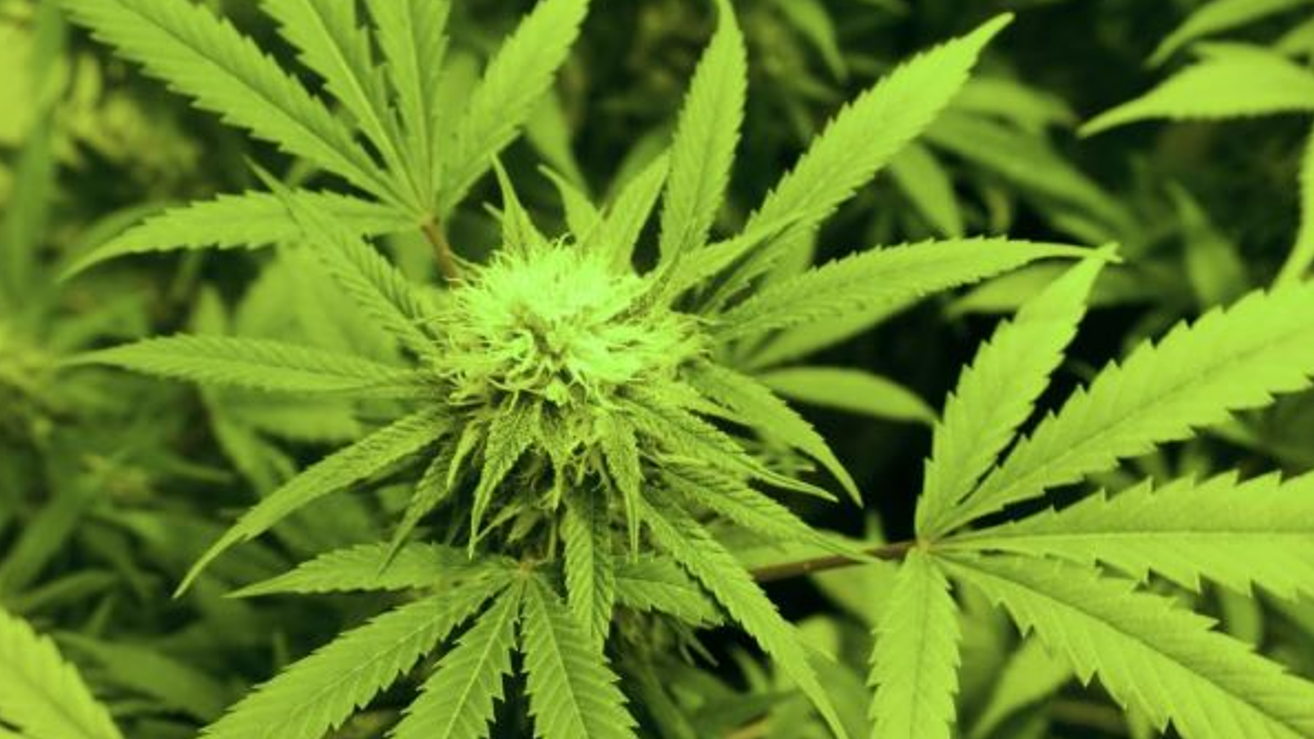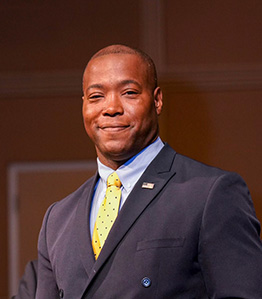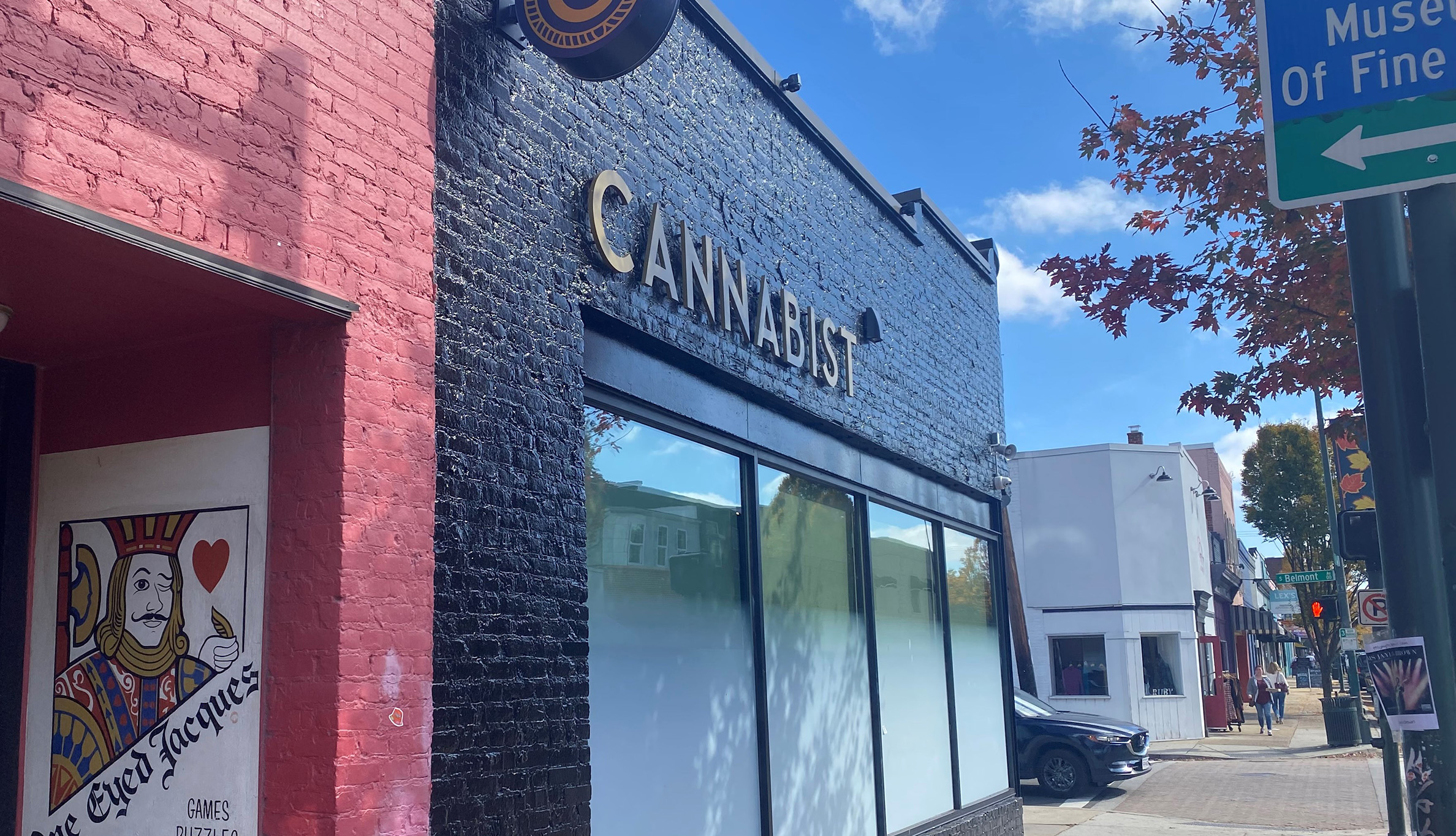
Both the Senate and House have passed bills to launch a legal retail market for recreational cannabis this week. (BizSense file)
Bills intended to launch Virginia’s recreational marijuana retail market took steps forward in the General Assembly this week.
The Senate on Tuesday passed a bill that would allow legal sales of recreational pot to start in January 2025.
Meanwhile, the House of Delegates on Monday passed legislation that would allow a few companies to begin sales starting in January 2025, with a wider rollout of the market in July 2025.
The two bills – Senate Bill 448 and House Bill 698 – vary not only in their approaches to market rollout, but also how many licenses would be available and who could take advantage of state-sponsored business support programs.
SB 448 envisions a single start date of Jan. 1, 2025, for anyone who wants to sell recreational pot, though licenses needed to operate legally in the market would start to be made available in July of this year.
Sen. Aaron Rouse (D-Virginia Beach), noting that Virginia legalized personal use of marijuana in 2021 but didn’t follow through in 2022 with the creation of a legal retail market, argued for regulations as a means to address the subsequent greater rise of a black market and associated issues in the state.
“Since that time, we’ve seen a major expansion of the illegal market where unregulated, untested and untaxed products are sold,” said Rouse, who introduced SB 448, ahead of the Senate’s vote this week. “We hear from Scott County to Virginia Beach that this is a true public safety and public health crisis.”
The latest version of Rouse’s bill would allow the Cannabis Control Authority, which would be tasked with overseeing the retail market, to award no more than 300 retail licenses, 50 wholesalers licenses, 60 manufacturer licenses and 450 grower licenses to operate in different sectors of the future legal industry.
Retail stores could have a sales floor as large as 2,500 square feet, per the version of the bill that passed the Senate.
The bill would create a “Minority and Small Business” program intended provide technical assistance and other resources to cannabis businesses that either have at least 66 percent ownership by people who lived three of the last five years in an economically disadvantaged area of the state; are U.S. military veterans; who have received a Pell grant; or have been an industrial hemp processor since Jan. 1, 2021, among other eligibility requirements.
HB 698, introduced by Del. Paul Krizek (D-Fairfax) similarly would tee up a retail market but would follow a phased-in approach to sales.
Under that proposal, the state’s existing licensed medical cannabis providers, some micro businesses (which would be companies that qualify for HB 698’s take on the “Minority and Small Business” program found in SB 448) and five industrial hemp processors could kick off sales on Jan. 1, 2025. The board could then start to issue licenses to other would-be operators in the market starting July 1, 2025.
HB 698 would require the board dole out licenses for cultivators, retailers, wholesalers and manufacturers by senatorial district, of which there are 40 in Virginia. At least five cultivation, manufacturing and wholesale licenses each would be awarded in each district, of which three of each category would go to micro businesses. There would be at least eight retail licenses per Senate district, and three of them would be issued to micro businesses.
Retail stores would be required to operate in spaces of no more than 1,500 square feet under the House bill.
HB 698 would establish a “Micro Business” program intended to support eligible businesses entering the market. Such businesses would, among other potential qualifiers, be those with at least 66 percent ownership and are directly controlled by people previously convicted of a misdemeanor cannabis charge; the family of a person convicted of such a violation; have lived for three of the last five years in an economically disadvantaged area; got a Pell grant; or are U.S. military veterans.
Both pieces of legislation would tee up the Cannabis Control Authority to regulate recreational retail pot cultivation as well as establish safety, testing and THC potency standards. Both bills would set the THC limit of legal recreational cannabis products at 10 milligrams per serving or 100 milligrams per package.
The Senate and House bills would both allow local governments to hold voter referendums on whether to prohibit marijuana retail stores in their jurisdictions.
SB 448 would allow localities to choose to institute a 3.5 percent sales tax on sales of recreational pot. The Senate bill would create a statewide sales tax of 12.5 percent on retail pot sales.
The House bill would allow local governments to levy a 4.5 percent tax on cannabis sales. The bill would create a state sales tax of the same rate.
The latest push to legalize sales of recreational pot follow failed attempts in 2023 and in 2022.
In 2021, Virginia legalized the personal use and possession of recreational cannabis but there isn’t currently a legal way to buy recreational pot in the state. The only legal sellers of pot in Virginia are the select companies operating in the state’s medical cannabis program.
Cannabist is the state-sanctioned seller of medical cannabis in the Richmond region. The company, formerly known as Columbia Care, operates several dispensaries under the Cannabist and gLeaf brand.
The next step for the bills is for the Senate and House to consider the versions passed by their counterparts in the other chamber. Bills that pass both in the Senate and House then head to the desk of Gov. Glenn Youngkin. However, the governor has been cool to the idea of providing the final approval needed to launch retail sales of cannabis, saying last month, “I just don’t have a lot of interest in pressing forward with marijuana legislation.”
It seems unlikely that the General Assembly could muster the two-thirds vote required in each chamber for either bill to overcome a rejection by the governor. Democrats and Republicans split 21-18 in the Senate to pass SB 448. HB 698 likewise passed on a largely party-line vote of 52-48, with Democrats supporting the bill.

Both the Senate and House have passed bills to launch a legal retail market for recreational cannabis this week. (BizSense file)
Bills intended to launch Virginia’s recreational marijuana retail market took steps forward in the General Assembly this week.
The Senate on Tuesday passed a bill that would allow legal sales of recreational pot to start in January 2025.
Meanwhile, the House of Delegates on Monday passed legislation that would allow a few companies to begin sales starting in January 2025, with a wider rollout of the market in July 2025.
The two bills – Senate Bill 448 and House Bill 698 – vary not only in their approaches to market rollout, but also how many licenses would be available and who could take advantage of state-sponsored business support programs.
SB 448 envisions a single start date of Jan. 1, 2025, for anyone who wants to sell recreational pot, though licenses needed to operate legally in the market would start to be made available in July of this year.
Sen. Aaron Rouse (D-Virginia Beach), noting that Virginia legalized personal use of marijuana in 2021 but didn’t follow through in 2022 with the creation of a legal retail market, argued for regulations as a means to address the subsequent greater rise of a black market and associated issues in the state.
“Since that time, we’ve seen a major expansion of the illegal market where unregulated, untested and untaxed products are sold,” said Rouse, who introduced SB 448, ahead of the Senate’s vote this week. “We hear from Scott County to Virginia Beach that this is a true public safety and public health crisis.”
The latest version of Rouse’s bill would allow the Cannabis Control Authority, which would be tasked with overseeing the retail market, to award no more than 300 retail licenses, 50 wholesalers licenses, 60 manufacturer licenses and 450 grower licenses to operate in different sectors of the future legal industry.
Retail stores could have a sales floor as large as 2,500 square feet, per the version of the bill that passed the Senate.
The bill would create a “Minority and Small Business” program intended provide technical assistance and other resources to cannabis businesses that either have at least 66 percent ownership by people who lived three of the last five years in an economically disadvantaged area of the state; are U.S. military veterans; who have received a Pell grant; or have been an industrial hemp processor since Jan. 1, 2021, among other eligibility requirements.
HB 698, introduced by Del. Paul Krizek (D-Fairfax) similarly would tee up a retail market but would follow a phased-in approach to sales.
Under that proposal, the state’s existing licensed medical cannabis providers, some micro businesses (which would be companies that qualify for HB 698’s take on the “Minority and Small Business” program found in SB 448) and five industrial hemp processors could kick off sales on Jan. 1, 2025. The board could then start to issue licenses to other would-be operators in the market starting July 1, 2025.
HB 698 would require the board dole out licenses for cultivators, retailers, wholesalers and manufacturers by senatorial district, of which there are 40 in Virginia. At least five cultivation, manufacturing and wholesale licenses each would be awarded in each district, of which three of each category would go to micro businesses. There would be at least eight retail licenses per Senate district, and three of them would be issued to micro businesses.
Retail stores would be required to operate in spaces of no more than 1,500 square feet under the House bill.
HB 698 would establish a “Micro Business” program intended to support eligible businesses entering the market. Such businesses would, among other potential qualifiers, be those with at least 66 percent ownership and are directly controlled by people previously convicted of a misdemeanor cannabis charge; the family of a person convicted of such a violation; have lived for three of the last five years in an economically disadvantaged area; got a Pell grant; or are U.S. military veterans.
Both pieces of legislation would tee up the Cannabis Control Authority to regulate recreational retail pot cultivation as well as establish safety, testing and THC potency standards. Both bills would set the THC limit of legal recreational cannabis products at 10 milligrams per serving or 100 milligrams per package.
The Senate and House bills would both allow local governments to hold voter referendums on whether to prohibit marijuana retail stores in their jurisdictions.
SB 448 would allow localities to choose to institute a 3.5 percent sales tax on sales of recreational pot. The Senate bill would create a statewide sales tax of 12.5 percent on retail pot sales.
The House bill would allow local governments to levy a 4.5 percent tax on cannabis sales. The bill would create a state sales tax of the same rate.
The latest push to legalize sales of recreational pot follow failed attempts in 2023 and in 2022.
In 2021, Virginia legalized the personal use and possession of recreational cannabis but there isn’t currently a legal way to buy recreational pot in the state. The only legal sellers of pot in Virginia are the select companies operating in the state’s medical cannabis program.
Cannabist is the state-sanctioned seller of medical cannabis in the Richmond region. The company, formerly known as Columbia Care, operates several dispensaries under the Cannabist and gLeaf brand.
The next step for the bills is for the Senate and House to consider the versions passed by their counterparts in the other chamber. Bills that pass both in the Senate and House then head to the desk of Gov. Glenn Youngkin. However, the governor has been cool to the idea of providing the final approval needed to launch retail sales of cannabis, saying last month, “I just don’t have a lot of interest in pressing forward with marijuana legislation.”
It seems unlikely that the General Assembly could muster the two-thirds vote required in each chamber for either bill to overcome a rejection by the governor. Democrats and Republicans split 21-18 in the Senate to pass SB 448. HB 698 likewise passed on a largely party-line vote of 52-48, with Democrats supporting the bill.





“Since that time, we’ve seen a major expansion of the illegal market where unregulated, untested and untaxed products are sold,” said Rouse, who introduced SB 448, ahead of the Senate’s vote this week. “We hear from Scott County to Virginia Beach that this is a true public safety and public health crisis.” Crisis is not the word I’ve heard from friends and neighbors participating in this market. They seem generally pleased that since 2022 availability, quality, and prices have all improved, and that most of the products available are sealed and labelled as they come from other states with legal… Read more »
Limiting the number of stores seems very much against free enterprise. Shouldn’t the state just set reasonable requirements and let the market sort it out? Producers should just be able to meet standards of accuracy in labelling and cleanliness. Stores and wholesalers should just be people capable of not adulterating products, and of not selling to minors. Why shouldn’t bars, that already sell alcohol, be allowed to sell edibles? Why isn’t this revenue stream being shared with existing mom and pop retail stores, c-stores, and wine stores. Why shouldn’t cigar stores be allowed to sell smokable products? To me this… Read more »
Absolutely!
If the state intends to restrict the number of stores and / or impose regulations akin to those of the VA ABC, I oppose the bill wholeheartedly. Instead, let’s decriminalize, release those incarcerated, expunge records, and shift the focus to taxing large dealers/importers solely under IRS code.
Anything but handing the government and it’s favored few a no brainer monopoly pre-structured and ready to go from day 1.
What people like is how it’s no longer criminal and it’s easy to access. However, the black market is not ideal for safety reasons. We really need a legal framework that’s simple, provides regulations, and that allows true small businesses to operate. gLeaf’s prices for medical marijuana are insanely overpriced and we need non-medical options available for retail sale. Right now many residents are buying from other states, which means our local economy is missing out.
gLeaf’s prices for medical marijuana are insanely overpriced Well if you had a state guaranteed monopoly how often would you lower prices?
I have seen in other states the when the legal framework was established with high taxes, it did nothing to extinguish the black market. This happened in OR and WA for example. Both states reduced their tax rates and the black market for marijuana basically disappeared, which is the goal of such legislation. But there are always unintended consequences. There is probably some relationship, albeit loosely, between the disappearance of a marijuana black market and the rise of the opioid epidemic. That said, we should, as this legislation comes to fruition, use addiction to opioids or numbers of fentanyl traffickers… Read more »